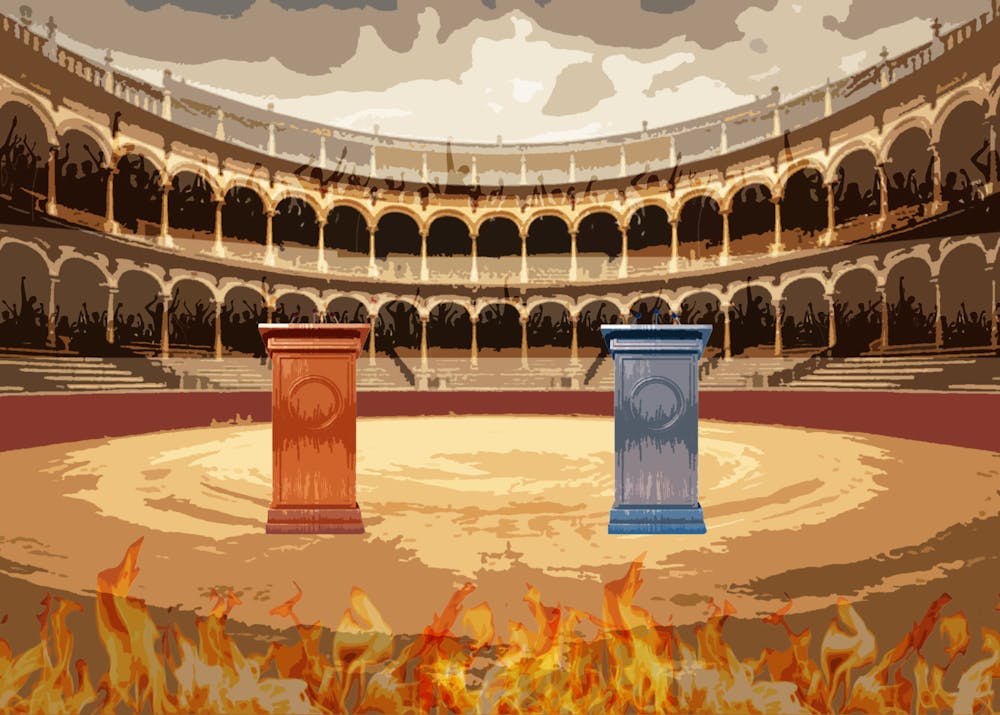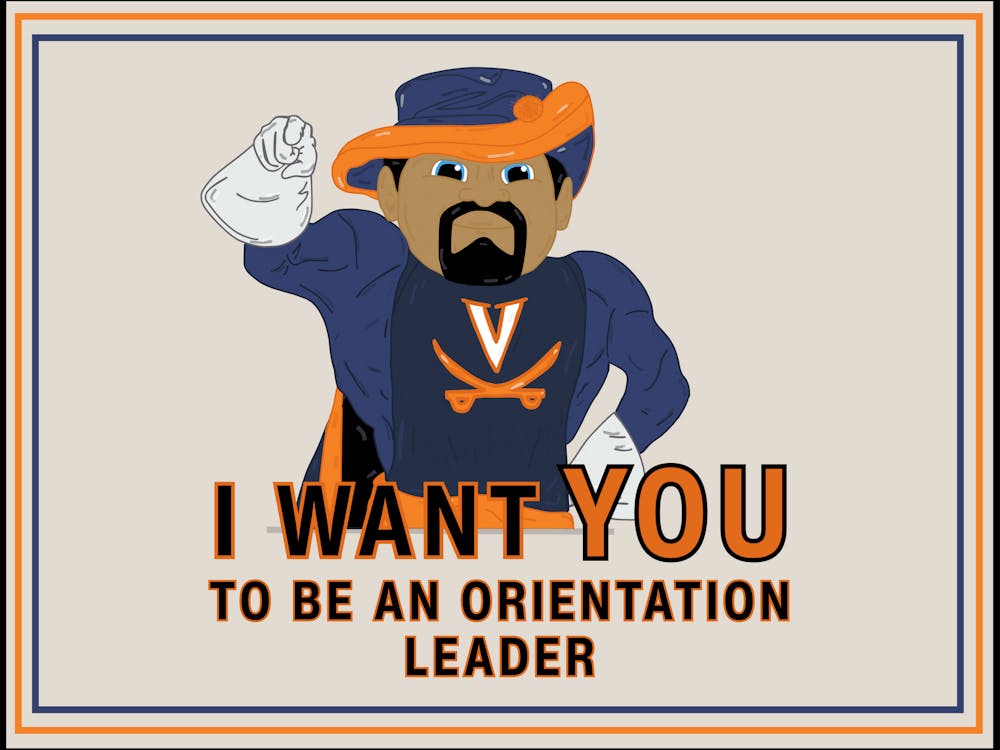Editor's note: This article is a humor column.
Sept. 12, the Roast Battle Federation — a new nonpartisan nonprofit endorsed by both Republicans and Democrats — announced that they will be holding another presidential debate Oct. 31, but this time in the form of a roast battle. Breaking from a 60-year-old tradition of electoral debates, this decision was deemed necessary in the wake of the Sept. 10 debate between Vice President Kamala Harris and former President Donald Trump, which experts argued was basically a roast battle.
“Most of the debate on Tuesday consisted of Harris and Trump attacking each other. From who received a small loan of a million dollars to who doesn’t give a frack about fracking, the candidates were at each other's throats,” said Roasting Expert Burn Tacrisp.
RBF has pointed to the two most recent presidential debates as the reason for this structural change. The June presidential debate setup allowed for Joe Biden, president and then Democratic candidate, and Donald Trump to throw insults at each other — with Biden calling Trump a "whiner" and Trump claiming that Biden cannot drive a golf ball more than 50 yards. Despite such engaging roasts, viewers at home grew gray hairs waiting for each candidate to formulate responses to policy questions from the moderator.
Experts hoped that the Harris-Trump presidential debate would be more civil. However, not even the muted mics could restrain the candidates from verbal combat. While the handshake between Harris and Trump was a positive optic that contrasted the stiff greeting between Biden and Trump, the appearance of peace and civility disappeared as soon as the back and forth began. According to RBF Founder Mick Canyon, this was the final straw that led to the creation of RBF.
“As I watched the debate, I couldn’t help but wonder what the nominees were thinking behind their smirks,” said Canyon. “It’s time we start acting like the candidates and forget about policy talk during debates. Voters don’t want to hear about Trump’s ‘concepts of a plan’ for healthcare — they want to hear him call Harris the president’s babysitter. And does it really matter if Harris dodges the border question? At least she confirmed that Putin would eat Trump for lunch!”
RBF has decided to harness the passion expressed by both candidates and the increased viewership of the recent roast-heavy debate to promote voter engagement. RBF Executive Director Daniel Disser has announced that both presidential candidates have agreed to this new debate format.
"The debate between Harris and Trump proved that holding our candidates back from roasting each other is like trying to get Trump to tell the truth — impossible,” said Disser. “Instead of continuously failing at keeping future debates orderly, we hope to capitalize upon the passionate political climate and get the attention of young voters through this ‘hip’ new change."
RBF's new website explains exactly how this format will look. First, the candidates will begin by greeting each other through calculated eye contact and silence, rather than any dreaded handshakes. Then, the roasting will immediately commence. Candidates may follow suggested roast formats — such as making rash statements, claiming that the other is Marxist and calling each others’ rallies lame. Limitations to the roast battle include any physical altercations between the two candidates, including, but not limited to, taking off each others’ wigs.
The battle will be mediated by a single moderator, who need not continuously fact check the candidates. RBF will no longer discriminate against the candidates’ perspectives by contradicting their statements with expert opinions and facts. Moreover, no longer will mics be muted just to be turned on anytime a candidate opens their mouth — rather each candidate will be able to speak their mind freely.
“RBF hopes the new format will allow candidates to seamlessly call each other out for wrongdoings, whether that is a policy failure or a felony charge,” said Disser. “Similarly, banning factual corrections will allow candidates to demonstrate their stances on imaginary topics — such as dogs being eaten by immigrants — rather than the actual hardships Americans face.”
It is unclear how the change in format will affect the venue. Rather than hold the roast battle in a sterile studio, many are calling for a complete venue switch-up. Some have proposed holding the roast battle in a public forum, such as a sports arena, so that people can experience the thrill of uncertainty as a collective. Others want to bring the event to where some of the most iconic roast battles have occurred — Dr. Phil's studio, with Dr. Phil himself as the chosen moderator.
In true American fashion, this would be a ticketed event with select seats going out on Ticketmaster presale. The remaining seats would be reserved and sold at a later date for an unfathomable price. Tomatoes would also be offered at concession stands for the audience’s throwing pleasure, but few will be able to afford them with the price of groceries still on the rise.
The announcement has also come amidst growing doubts about the validity of the Electoral College system. With the roast battle format, the United States may opt to embrace a new form of voting — it is unclear whether this will come in the form of which side chants the loudest or which candidate leaves the scene too embarrassed to continue on into the Oval Office.
Voters have expressed excitement about this change in debate format. Civie Duty, an independent voter, outlined her hopes for the event.
"I can’t wait to be an audience member at the electoral roast battle,” said Duty. “I hope the candidates focus on sourcing their insults from Twitter — that's where the real magic happens."







